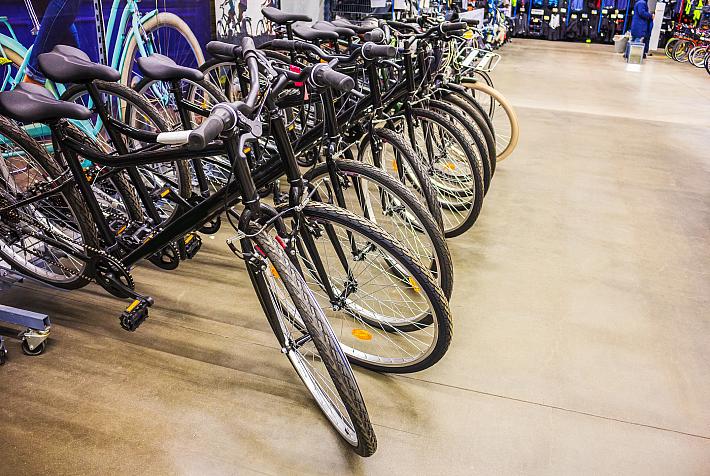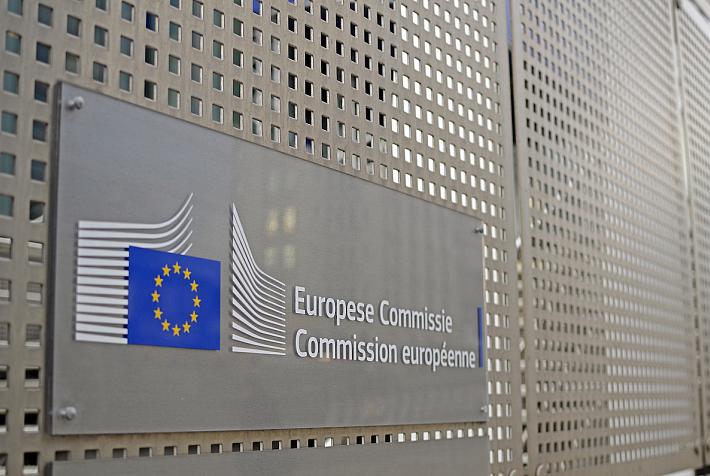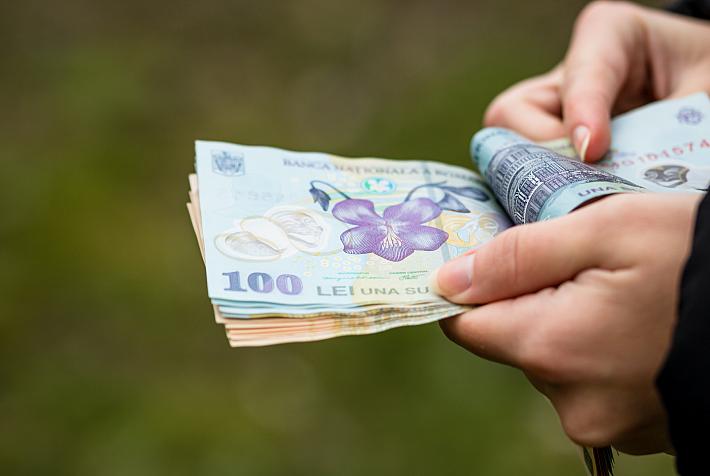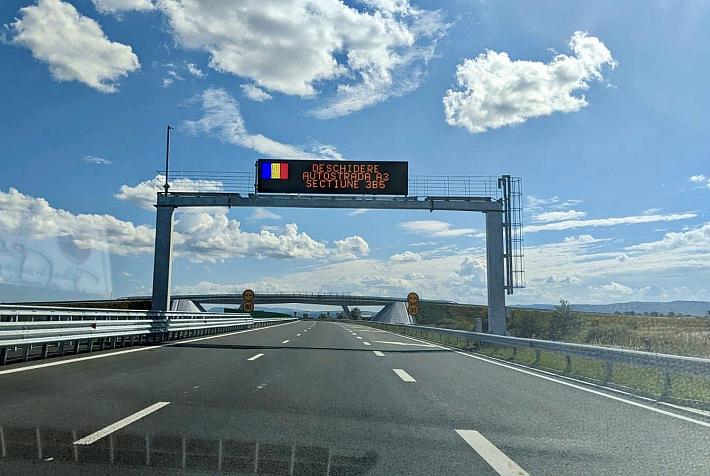Dan Mașut, TOKEN Financial Technologies Romania: We see a huge growth potential in the Romanian payments market

“We believe there are many opportunities for TOKEN in Romania, the land of “virgin forests” where we can move in and offer meaningful services to our merchants and to end-customers,” says Dan Mașut, CEO of TOKEN Financial Technologies Romania.
TOKEN, the largest payment services provider in Turkey, has invested EUR 7 million to set up TOKEN in Romania, its first international subsidiary, which will serve as a base for the group’s expansion in other EU markets in Eastern Europe.
One reason for this investment is that TOKEN’s parent group has been active in Romania for 20 years – TOKEN is part of the Koç Group of Companies, Turkey’s largest private holding, which owns the Romanian appliance manufacturer Arctic and the car factory Ford Otosan Craiova.
However, the growth potential of the local payments market was among the main motivators for TOKEN to enter our market.
“The Romanian payments market is still dominated by a mix of local and regional players, notably due to the lower percentage of online and card-based sales compared to other EU countries – and this is where we saw the growth opportunities. Romania has a high internet and smartphone penetration rate and the average Romanian consumer, especially the 18-35 age group, is very savvy in terms of using the latest available technology. This will sooner or later shift consumer trends to online and cashless transactions,” says Dan Mașut, CEO of TOKEN Financial Technologies Romania.
“Another factor that will play an important role in our goal is to help reduce the black and grey markets and contribute to an increase in tax collections that will balance the state budget. This will lead to a higher degree of taxation and a shift to online, card-based, cashless methods of payment. Therefore, we think that the growth potential is tremendous here, on the Romanian market,” he explains.
The company aims to reach a total of over 15,000 merchants in Romania and a 35-40% market share in the POS payment terminals market - which Dan Mașut believes is possible in the next 3-4 years - and then to expand to other EU markets in the region.
Read the full interview below to learn more about:
- TOKEN’s services and approach to the market
- The company’s investments in Romania
- Trends in the Romanian payments market
- Similarities and differences between the Romanian and the Turkish markets
- The overall experience of doing business in Romania
What is TOKEN and what types of services does it provide? What sets the company apart from competitors in the FinTech industry?
Dan Mașut: TOKEN is a payment services provider, present in both offline payments through our OderoPOS payment terminals, as well as the online e-commerce payments with our OderoPAY platform. TOKEN is the market leader for payment services in Turkey, with a 54% market share, over 800,000 payment terminals on the field, a 20-bank payments network amounting to roughly over 98% of the banking market, and 6 million transactions being processed daily. TOKEN is also an e-money institution, authorized by the Turkish Central Bank.
We incorporated TOKEN in Romania in January 2021 and the aim is to gradually bring in Romania all TOKEN’s payment services that are currently on offer on the Turkish market. By doing this we plan to be on a different playing field in comparison to the competition. We will offer solutions and technologies covering the entire spectrum of payment processes. Another competitive advantage is the fact that we have our entire product and software development team in-house, so we are very flexible in developing custom solutions for our customers (merchants), as well as integrating our solutions with the applications and websites that these merchants are already using, and hence, offering the end-customer a seamless, integrated user experience.
Finally, TOKEN is a technology developer, that has been producing Beko payment terminals and cash registers in Turkey since 1985 - and today the company produces all its Beko payment terminals, thus controlling the full supply chain by offering merchants smaller lead times. Because of the advantages of being a producer, we are able to read the market and create devices that are in line with the possible market trends and demands.
For instance, we are in the process of launching a fiscal kiosk device that incorporates a POS payment terminal, fiscal cash register, the bank card payment application, the automated fuel dispensation workflow application, and the fiscal cash register application all on the same device. The main use case will be for fuel stations. Later this year, we will apply for a similar authorization, to ICI, for a payment terminal that incorporates a POS, fiscal cash register, the bank card payment application, and the fiscal cash register application, again all on the same device. We are able to anticipate the demand being created in the market and make production plans for customized products.
Romania is the first market outside Turkey where TOKEN has opened a subsidiary. Why has the group made this decision?
Dan Mașut: TOKEN is part of the Koç Group of Companies, Turkey’s largest private holding. Our companies account for 8% of Turkey’s GDP and 8-10% of Turkey’s exports. In Romania, the Koç Group is already present through Arctic, Ford Craiova, Otokar, and Entek, and this gives us a very mature infrastructure and network of relationships. Romania is quite close to Turkey, both geographically and culturally, and this makes it easy for Turkish businesses to operate here. Romania has an incredible talent pool of young and capable software development, tech, and R&D engineers. And not so surprisingly, Romania is also one of the countries where the group has the strongest presence outside of Turkey. These are the reasons why the company chose Romania as TOKEN’s first venture outside of Turkey.
How much has the company invested so far to establish its presence in the Romanian market and what were the biggest costs? Are there more investments to follow?
Dan Mașut: We have invested EUR 7 million until now in the Romanian subsidiary, in the form of paid-in share capital. The most significant costs have been related to maintaining our team of 25 people, meaning salaries, benefits, etc. Our second biggest cost was the investment we made in our OderoPAY online e-commerce payment platform. We partnered with a well-known Romanian software development company and built a custom-made payment platform, which we have already implemented for several merchants in the market. The other major investment items have been related to the development of our other products.
We will keep on improving our products, adding more features, integrating more banks and financial institutions, and offering more flexible facilities to our merchants. And of course, this will mean that we will keep on investing in our Romanian company. During the next couple of years, we hope that TOKEN Romania will be in a position where we can start to self-finance our investments, without major cash injections from our shareholders.
What are the key trends you see now in the Romanian payments market? How do you see the market evolution in the long term?
Dan Mașut: The Romanian payments market is still dominated by a mix of local and regional players. One main reason is the lower percentage of online and card-based sales compared to other EU countries. However, we see this as a growth potential. Romania has a high internet and smartphone penetration rate, and the average Romanian consumer, especially the 18-35 age group, is very savvy in terms of using the latest available technology. This will sooner or later shift consumer trends to online and cashless transactions.
Another factor that will play an important role is our objective to reduce the black market, contribute to the increase of tax collection, and thus support the Romanian state’s efforts to balance its budget. This will lead to a higher degree of taxation, and a shift to online and card-based cashless methods of payment. Again, we believe there’s a huge growth potential here as well.
When other players look at Romania, they may see that there are many actors in the market, that the market is segmented, and that the banks are still dominating payment solutions and methods. But we believe that there are many opportunities for TOKEN in Romania, a land of “virgin forests” where we can move in and offer meaningful services to our merchants and to end-customers
Are there any significant differences between the Romanian and Turkish payment markets?
Dan Mașut: There are both similarities and differences between the two payment markets. Turkey has a very large population, almost 85 million inhabitants, and therefore is a huge consumer market. Consumers in Turkey are very much used to receiving flexible and premium services and customer care. As an example, buy-now-pay-later is now becoming a trend in Western Europe, however, it has been around in Turkey since the 90s, and was even implemented in Romania, through the pioneer products brought by Turkish banks, such as CardAvantaj or BonusCard, and this was followed by other leading banks in Romania.
In Romania, the end customer still does not have too many options in terms of flexibility in payment terms, loyalties, bonuses, etc. compared to Turkey. As a result of how the Turkish market has evolved, it is now dominated by cashless methods of payment. In Turkey, 70% of payments are cashless, while in Romania close to 70% of payments are still cash-based.
Another difference is the type of companies that are present in both markets. Romania has a lot of local and regional players offering payment services and solutions, whereas you can see that most of the global names are already present in Turkey. This is of course due to the size of the market there and the percentage weight of cash payments vs. cashless payments.
For the POS business, the model is different in Turkey vs. Romania. In Turkey, merchants buy POS devices and can dictate which banking application should be installed on each POS. For example, if a merchant works with Ziraat Bank, Is Bank, Garanti Bank, and QNB Finansbank, the merchant can tell the producer of the POS device that they want the banking applications of these four banks to be installed on the same POS. In Turkey, almost all POS terminals work on a POS-sharing multi-bank principle. POS sharing is still at an incipient stage in Romania, it will not be on our radar for another 2-3 years. However, we see a similar sharing model happening in the future. We are continuously discussing with large and medium-to-large sized retailers and this is one of their common long-term objectives.
The primary idea is that despite the differences in the two payment markets, we have focused on keeping our tried and tested components related to covering the similarities and building custom solutions or coming up with innovative business models to successfully address the differences.
What type of clients do you target in Romania with your services and how can the TOKEN technologies help these clients?
Dan Mașut: We are targeting several main types of customers. On the one hand, we target banks and financial institutions that are looking to replace their old POS fleets with new, innovative, Android-based payment terminals. We know – and our experience has proven so - that our terminals are competitive and we have proposed to enter all the major tenders that the banks will launch on the Romanian market; on the other hand, we look at medium-to-large-sized retailers and chain organizations, where we can offer flexible commercial terms, state-of-the-art technology, good after-sales customer care, and the integration of our technologies with the existing sales systems and e-commerce websites of the merchants, both for POS payment terminals and for e-commerce payments; last but not least, small retailers are also on our radar, as we can offer standard POS technology at advantageous commercial terms.
Can you share any specific target related to the number of clients or market share that TOKEN plans to achieve in Romania?
Dan Mașut: Our ultimate goal is to reach 15,000+ merchants in Romania and have a 35-40% market share in the POS payment terminals market. We can see that happening in 3-4 years’ time. And also, in the near future, we will be looking to expand our business to other EU member states in Eastern Europe where our Beko brand already enjoys strong market awareness and is a market leader in household appliances.
What are the major challenges of TOKEN in Romania?
Dan Mașut: Our group has been present in the Romanian market since 2003, following the finalization of the acquisition of Arctic, which has been a unique success story in terms of how much the company has grown since our acquisition. The company has over 20 years of experience doing business in Romania, so there is no general or specific challenge that we have not already been familiarized with. Our team has found here a great working environment, with major potential and very talented and knowledgeable people, that can add real value. But, most important, above and beyond any business success we might have had, in the last 20 years our presence in Romania has managed to forge life-changing and everlasting friendships between our Turkish and Romanian colleagues and their families – and this is the most cherished achievement of all.
*This interview was written by the Romania Insider team for TOKEN.








